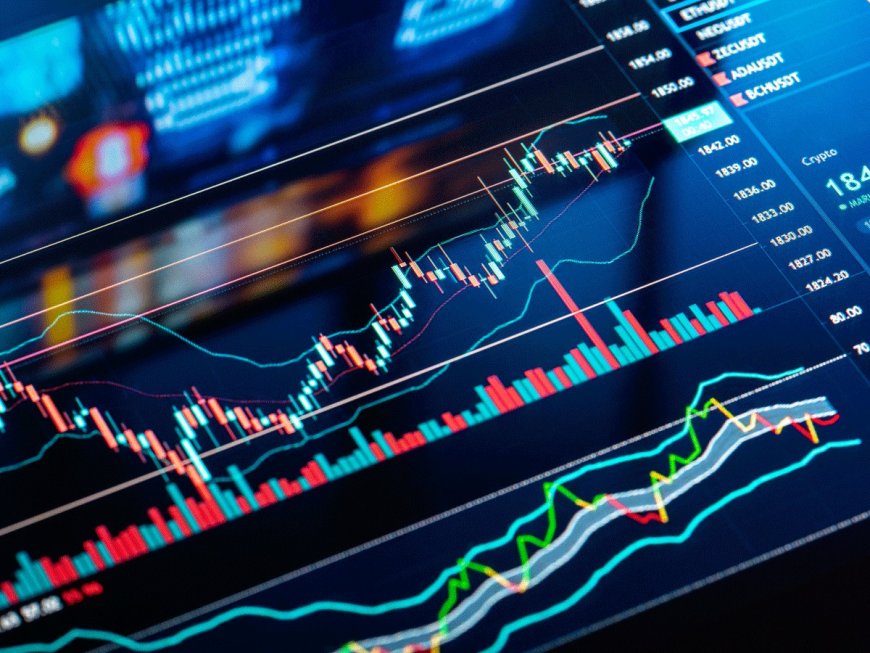Positive Momentum in Asian Stock Markets Following US Inflation Data
Read about the Asian Stock market's reaction to the latest U.S. inflation report for August. Discover how inflation trends, stock performances, and global factors are shaping investor sentiment.

Asian markets responded with a mix of optimism and caution to the latest U.S. inflation report for August. The report showed a moderate increase in inflation, in line with expectations. This has helped ease concerns about an imminent interest rate hike by the Federal Reserve.
Leading the charge was Tokyo's Nikkei 225, surging 1.4% to 33,168.10. Seoul's Kospi also saw a significant jump of 1.1%, closing at 2,561.45.
However, Hong Kong's Hang Seng index experienced a slight dip of 0.1%, settling at 17,995.21. This was due to renewed concerns about China's property sector. Notably, major real estate developer Country Garden observed a 4.6% decline in its Hong Kong-traded shares, anticipating a bond repayment deadline.
The Shanghai Composite index also faced a minor setback, declining by 0.3% to 3,114.38. On the other hand, Australia's S&P/ASX 200 displayed positive growth, advancing by 0.6% to 7,195.10.
In the U.S., on Wednesday, the S&P 500 exhibited a marginal uptick of 0.1% to 4,467.44, oscillating between modest gains and losses. The Dow Jones Industrial Average, however, saw a slight drop of 0.2% to 34,575.53. On a positive note, the Nasdaq composite rose by 0.3% to 13,813.59.
The inflation report disclosed that U.S. consumers faced prices last month that were 3.7% higher compared to the previous year. This represents a slight increase from July's inflation rate of 3.2%, aligning closely with the projected 3.6% surge.
While this may present a challenge for consumers grappling with higher prices, a significant portion of this escalation can be attributed to heightened fuel costs. Experts suggest that underlying inflation trends indicate a continued moderation in price increments. Since peaking at over 9% last year, inflation has generally been on a cooling trajectory.
The significance of this inflation report lies in its potential impact on the Federal Reserve's future decisions regarding interest rates. The Federal Reserve has already elevated its primary rate to the highest level in over two decades, which has implications for stock and other investment prices. The hope on Wall Street is that inflation has abated sufficiently for these hikes to conclude.
While economists often exclude fuel costs when analyzing inflation trends, households and businesses do not have the same luxury. As a result, sectors like airlines are particularly affected, with some of the most significant losses recorded in the S&P 500.
American Airlines, for instance, revised down its profit forecast for the summer season due to unexpectedly high fuel costs. This adjustment was further compounded by an expenditure of approximately $230 million in retroactive pay to pilots following the ratification of a new labor contract, resulting in a 5.7% drop in its stock value.
Similarly, Spirit Airlines found itself contending with higher-than-anticipated fuel expenses this summer, averaging at around $3.06 per gallon as opposed to the initially projected $2.80. Additionally, the airline has witnessed steep fare discounts in recent weeks. These factors led to a downward revision of revenue forecasts for the third quarter, culminating in a 6.3% decline in its stock.
Other airlines, including United Airlines with a 3.8% decrease and Delta Air Lines with a 2.8% drop, also experienced losses.
Conversely, high-growth stocks on Wall Street stand to benefit if the Federal Reserve refrains from further interest rate hikes. While elevated rates have repercussions across various investment categories, they tend to exert the most pressure on technology companies and other entities promising substantial future growth.
Amazon saw an increase of 2.6%, Microsoft gained 1.3%, and Nvidia experienced a rise of 1.4%.
In a positive development, Moderna enjoyed a rally of 3.2% following promising results from a flu vaccine trial.
In the commodities market, U.S. benchmark crude oil saw an addition of 56 cents, reaching $89.07 per barrel in electronic trading on the New York Mercantile Exchange, after a 32-cent loss on Wednesday. Meanwhile, Brent crude, the international trading standard, observed an uptick of 53 cents, closing at $92.41 per barrel.
In currency exchange, the U.S. dollar experienced a slight dip, settling at 147.14 Japanese yen from 147.47 yen. The euro, on the other hand, saw a rise to $1.0745 from $1.0732.
Also Read: Market Analysis: Wall Street's Mixed Day with Crude Oil Surging and Eyes on Inflation Data
































































